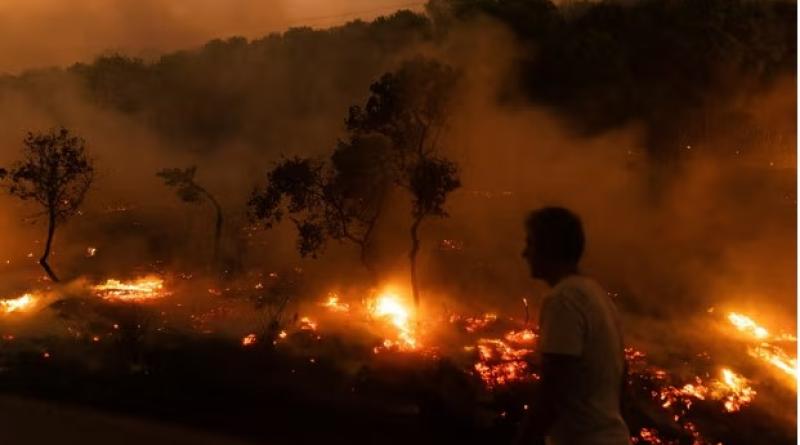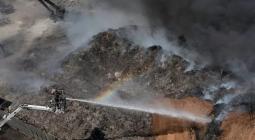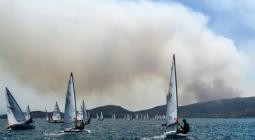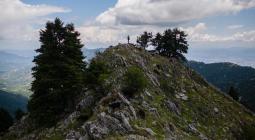Asylum seekers in Greece ‘facing two great injustices of our time’

Amnesty links wildfires and lack of legal migration routes to deaths of 19 people believed to be asylum seekers.
Refugees and migrants in Greece are facing off against the “two great injustices of our times”, Amnesty International has said, as it linked wildfires and scant access to legal migration routes to the deaths of 19 people believed to be asylum seekers.
As wildfires continue to rage across swathes of Greece, authorities in the country said they were working to identify the charred remains of 18 people found this week in the dense forests that straddle the country’s north-eastern border with Turkey.
Given there were no reports of missing people in the area, officials said it was possible the victims, who include two children, were asylum seekers who had entered the country irregularly. One day earlier, the body of another person believed to be an asylum seeker was found in the same area.
In recent days the fires have ripped through an area that had increasingly become a crossing point for thousands of refugees and migrants, Amnesty International said in a statement. Their arrival on EU soil had been “systematically” met with “forced returns at the border, denial of the right to seek asylum and violence”, it added.
“The 19 people killed by wildfires in northern Greece appear to be victims of two great injustices of our times,” said Adriana Tidona, a migration researcher with the organisation.
“On the one hand, catastrophic climate change … On the other hand, the lack of access to safe and legal routes for some people on the move, and the persistence of migration management policies predicated on racialised exclusion and deadly deterrence, including racist border violence.”
The presence of hundreds of asylum seekers in the fire-ravaged area was flagged this week by Alarm Phone. “We are in contact with 2 groups of around 250 people in total who are stranded on different islets of the Evros River,” the NGO wrote on social media. “They say ‘the fires are getting very close to us now. We need help as soon as possible!’”
Pleas for help had gone unanswered by authorities for days, it added. “They fear for their lives as the wildfires approach and the air is unbreathable.”
As the wall of flames advanced through the forests, people had been left grappling with an impossible dilemma, said Vassilis Kerasiotis, the director of the NGO HIAS Greece. “The problem is that the asylum seekers have legitimate fears of being pushed back to Turkey. That’s why they’re hiding instead of going to the nearest Greek authority.
“The fact that in the face of a fire, people are hiding in the forest instead of trying to get to safety tells you of the fear they have of being deported.”
As Greek authorities increasingly seek to deter migration by creating what Kerasiotis described as a “hostile” environment, asylum seekers are likely to have been pushed deeper into the forests, potentially amplifying the risks they face from the fires. “This is a clear example of the policy of fear, unfortunately,” he said.
Added to these dangers is a wave of racist incidents in which asylum seekers have reportedly been targeted, fuelled in part by social media posts such as that of a far-right MP who made baseless claims on Facebook that accused refugees and migrants of starting the fires.
Soon after, three men were arrested for allegedly detaining 13 asylum seekers in a cargo trailer. Media linked the arrests to a video circulating on social media that showed a man unbolting the door of a cargo trailer to reveal what appeared to be several young people crouched inside. As the video rolled, the man linked them to the fires and encouraged others to “round them up”.
On Tuesday, Greece’s supreme court prosecutor, Georgia Adilini, said he had asked the prosecutor in north-eastern Alexandroupolis area to investigate the incidents of alleged racist violence.
Photograph: Achilleas Chiras/AP - Wildfire near Alexandroupolis, where a prosecutor has been asked to investigate alleged racist violence.





